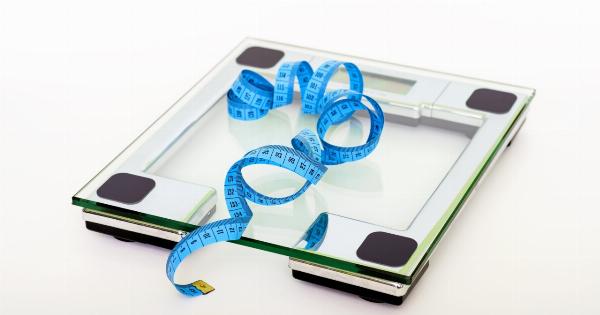Weight is a critical aspect of our overall health and well-being. Whether you’re looking to lose weight or maintain it, understanding the basics of calculating your weight correctly is essential.
Many people rely on the traditional method of using a bathroom scale to measure their weight. However, this method alone does not always give you an accurate representation of your body weight.
Factors like water retention, muscle mass, and body composition can affect your weight numbers.
In this comprehensive video guide, you’ll learn the correct way to calculate your weight accurately and the tools required to achieve the best results. Here are the ten most important things about calculating your weight correctly;.
1. Understand your Body Mass Index (BMI)
One of the most common methods used to measure body weight is the Body Mass Index (BMI). The BMI uses height and weight to determine whether a person has a healthy weight, is underweight, overweight or obese.
To determine your BMI, you can divide your weight in kilograms by the square of your height in meters (kg/m2). A BMI between 18.5 and 24.9 is healthy, while a BMI of 25 or above is classified as overweight or obese.
2. Use a Digital Scale
Digital scales have become the preferred method of measuring weight accurately.
Unlike traditional mechanical scales that may not always give you accurate readings, digital scales provide precise measurements and can be useful for tracking weight changes over time.
3. Weigh Yourself at the Same Time Each Day
The time of day and what you have eaten or drank can affect your weight. To get the most accurate measurements, it’s recommended to weigh yourself at the same time each day under similar conditions.
For instance, weighing in the morning after using the bathroom but before eating anything is the best practice.
4. Stand Straight
When using a scale, it’s advisable to stand straight and center the body on the scale platform. Holding onto anything while standing on the scale can alter the weight reading.
Therefore, it is necessary to keep your feet flat on the ground and stand still for an accurate weight reading.
5. Wear the Same Clothes
A change in clothing can cause weight fluctuation. Therefore, it’s important to wear the same type of clothing while weighing yourself to maintain consistency in measurements.
6. Calculate Body Fat Percentage
Calculating your body fat percentage is essential to understanding your overall health.
It involves a straightforward process that requires measuring your weight and body fat percentage and developing healthy lifestyle habits, such as healthy diet and regular exercise to keep body fat under control.
7. Take Body Measurements
Measuring body parts like arms, legs, waist, and hips is an excellent way to track progress, especially if losing weight is an objective.
These measurements can help identify if there are improvements in overall body composition, even if weight does not change considerably.
8. Use a Smart Scale
Smart scales have evolved to make weight tracking easier than ever. These scales have various functions that go beyond measuring weight. They can synchronize data from smart devices for easy weight tracking.
They provide insights about your body’s water percentage, muscle mass, body composition, and other essential metrics.
9. Consult Your Healthcare Provider
If you’re struggling with your weight, consulting with a healthcare provider can be beneficial.
They can give insight into potential underlying problems, provide guidance on healthy habits, suggest dietary supplements and suggest the best approach to achieving your weight-related goals.
10. Don’t Obsess Over Weight
While weight is essential, it’s important not to obsess over it. Factors like genetics, hormones, and underlying medical conditions can change weight numbers, resulting in temporary changes that are of little significance.
Focus on making positive healthy changes by eating well, getting enough exercise and sleep, and managing stress to maintain a healthy weight.
Conclusion
Calculating your weight correctly involves a simple process that involves using digital scales, measuring body fat percentage, taking body measurements, and using smart scales.
While weight is essential, it’s also necessary to focus on achieving overall health and well-being by making healthy lifestyle choices. The most important thing is to find a way to measure your weight regularly to track changes in your health and take steps to maintain the healthy weight that’s right for you.




























